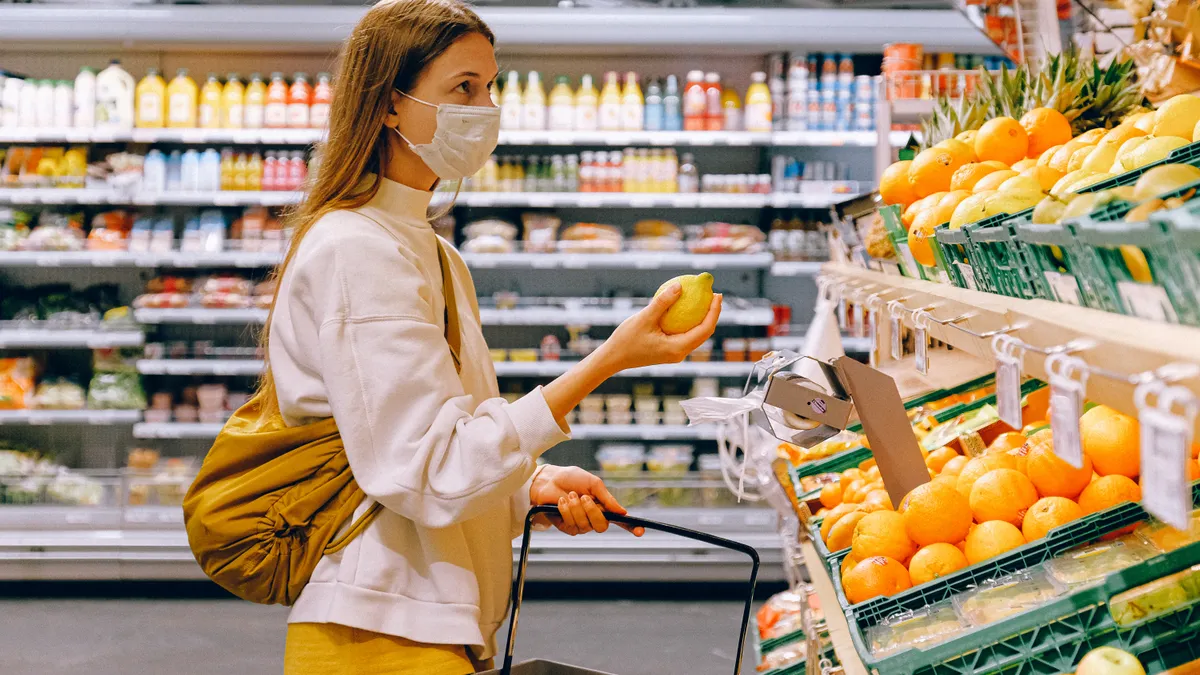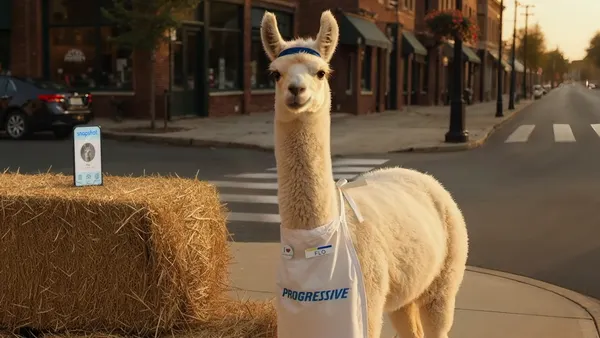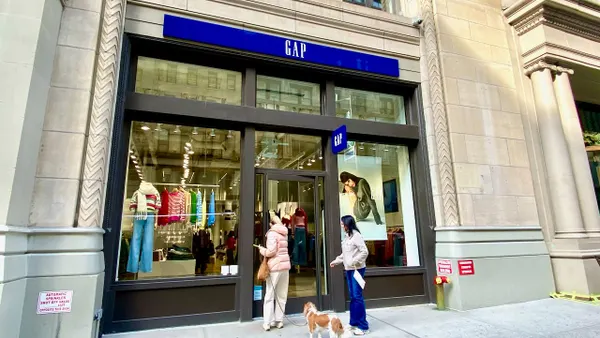Dive Brief:
- M&M's runs the best-in-class direct-to-consumer (DTC) website among consumer packaged goods brands, according to an analysis of 29 companies conducted by Forrester and shared with Marketing Dive. The researcher's Go-To-Market Review evaluated brands based on five criteria: DTC strength, discoverability, distribution and level of digital control, organic consumer enthusiasm and product innovation.
- The Mars candy brand's leading position stemmed from its large social media following and a website that offers a mix of product customization, loyalty rewards and interactivity, such as a 3D render of its Disney Springs store location. Clif Bar, Kind, Enfamil, Gerber and Hint rounded out Forrester's top rankings.
- Developing a successful DTC strategy is becoming essential for CPGs as more consumers shop online during the coronavirus pandemic and as demands grow around owning the point of sale in the race to acquire more first-party data.
Dive Insight:
Forrester's latest Go-To-Market Review offers insights into what's working for CPGs as companies in the category move quickly to build stronger DTC muscles. M&M's is a clear standout thanks to a website that hits its marks when it comes to engaging content, product personalization and a clear loyalty program sign-up feature. The candy brand successfully leverages other channels to drive interest to its site, per Forrester, using social media to hook consumers with content like recipe ideas.
CPGs historically rely on third-party distributors to reach consumers, but more brands are trying to take ownership of the point of sale as shopping habits go digital and acquiring first-party data becomes critical to marketing functions. Retailers are chasing similar goals, setting up media networks that could expand into walled gardens that make true data ownership more difficult for individual CPGs. The pandemic has rapidly accelerated the leap to e-commerce, but many CPGs are ultimately not capitalizing on the DTC opportunity, Forrester said.
In May last year, 16% of adults in the U.S. claimed they ordered groceries online for the first time due to the health crisis, marking a "significant addition" to the group of online shoppers, according to Forrester. Digital sales of edible, nonperishable and general food products, including CPG offerings, grew from 38% of online grocery subcategories prior to the pandemic to 76% in the midst of the crisis, Forrester and IRI data revealed.
Even CPG marketers that performed well in Forrester's analysis have gaps they could fill. Coca-Cola, for instance, has strong discoverability, evident in its appearance near the top of search results on both retailer sites and in search engines. Like M&M's, the soft drink brand is able to tap into a massive social media following to drive consumer interest. But Coke was also invisible in places where it "should be," per the report, suggesting scale could be getting in the way of more targeted opportunities.
"By attracting organic traffic, brands activate word-of-mouth marketing as well as other discovery sources beyond search engines or marketplaces," Forrester said. "M&M's and Coca-Cola had large followings across a variety of social networks. They achieved this loyalty, in part, with professionally curated content and relationships with influencers."
Colgate, the toothpaste brand, scored accolades on the distribution and e-control front for its warnings about "gray market" products on other sites that may be imitation or counterfeit goods — a significant problem with which CPGs increasingly contend. Forrester called Colgate out, however, for having higher pricing on its DTC platform than elsewhere.
CPGs will continue to invest in proprietary DTC platforms with the looming death of the third-party cookie and as habits driven by the pandemic stick. PepsiCo last year introduced two new DTC sites, PantryShop.com and Snacks.com, to seize on pantry-loading trends, and other blue-chip marketers have followed suit. The broader realignment toward digital sales channels could result in changes to internal operations.
Forrester previously recommended that brands investing in DTC should more closely integrate their digital commerce and wholesale partner teams, while focusing on being more of a partner to retailers than a supplier.














